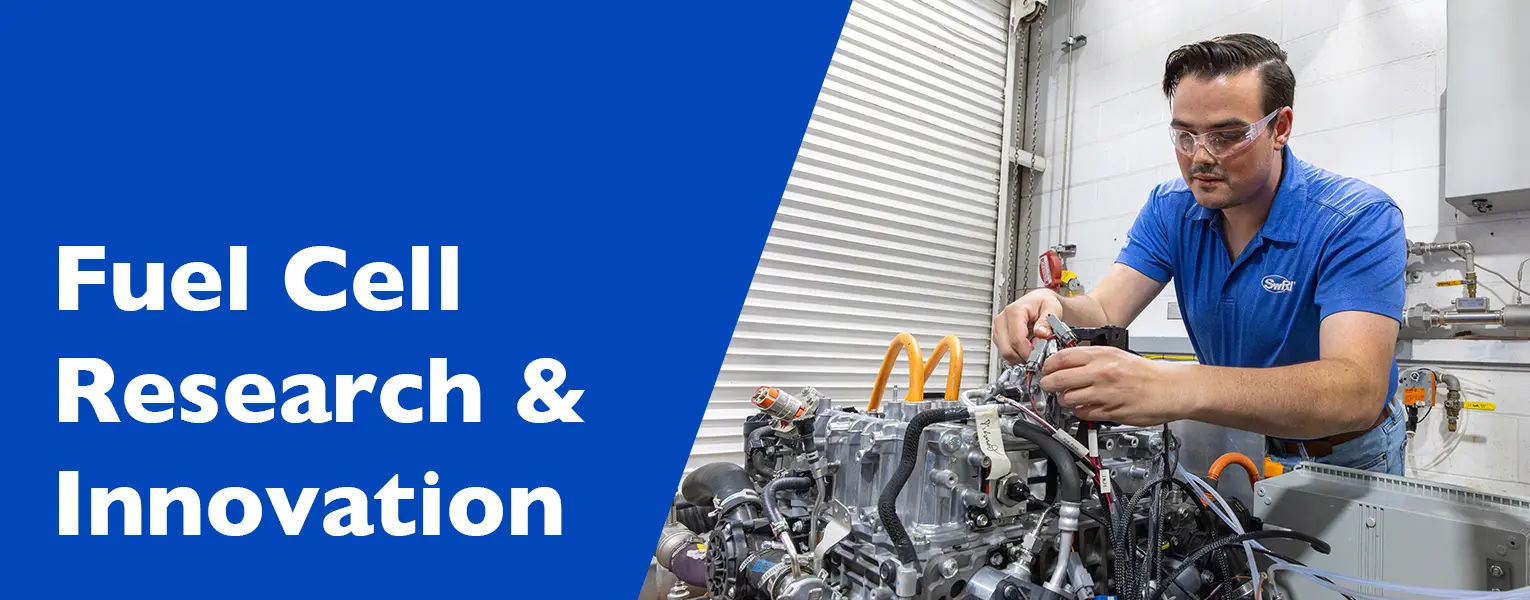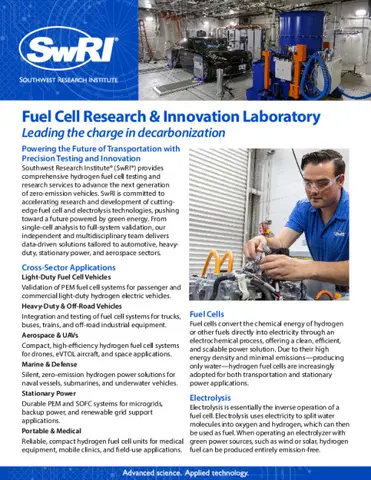Fuel cells powered by hydrogen cleanly and efficiently generate electricity, producing no harmful pollutants — just water. These green energy sources are becoming increasingly popular not only for the automotive applications but also for stationary and portable power generation. Southwest Research Institute offers a dedicated fuel cell research and testing laboratory to help industry professionals develop new fuel cell technologies and improve the performance of existing systems.
Powering the Future of Fuel Cell Transportation & Energy Innovation
SwRI conducts a variety of hydrogen powertrain and fuel cell testing and research.
|
Fuel Cells Fuel cells are electrochemical devices that convert hydrogen and oxygen into electricity, producing only water and heat as byproducts. As a clean, highly efficient, and scalable energy solution, fuel cells are widely deployed in transportation, stationary power, and portable applications with minimal environmental impact. |
Electrolyzers Electrolysis is the electrochemical process of splitting water into hydrogen and oxygen using electricity. When powered by renewable energy sources such as wind or solar, electrolyzers can produce green hydrogen with zero carbon emissions. This process not only enables clean fuel production but also supports energy storage and grid balancing in renewable energy systems. |
PEM Stack Testing Capabilities
Fuel cell power systems consist of layers of membranes, catalysts and other assemblies that generate electricity when hydrogen is combined with oxygen. Multiple fuel cells can be combined in series to form a fuel cell stack. A proton exchange membrane (PEM) stack coupled with an appropriately sized balance of plant (BOP) creates a fuel cell system that can provide power for personal, vehicle or stationary power applications. SwRI performs PEM stack testing for automotive and power generation applications and we conduct research related to anion exchange (AEM) electrolysis and other fuel cell technologies.
Cross-Sector Applications
|
Light-Duty Automotive Vehicles Validation of PEM fuel cell systems for passenger and commercial light-duty hydrogen electric vehicles. |
Marine & Defense Silent, zero-emission hydrogen power solutions for naval vessels, submarines, and underwater vehicles. |
|
Heavy-Duty & Off-Road Vehicles Integration and testing of fuel cell systems for trucks, buses, trains, and off-road industrial equipment. |
Stationary Power Durable PEM and SOFC systems for microgrids, backup power, and renewable grid support applications. |
|
Aerospace & UAVs Compact, high-efficiency hydrogen fuel cell systems for drones, eVTOL aircraft, and space applications. |
Portable & Medical Reliable, compact hydrogen fuel cell units for medical equipment, mobile devices, and field-use applications. |
Our Core Services
Whether you're validating a new PEM stack, optimizing a hybrid hydrogen system, or developing aviation fuel cell protocols, SwRI is ready to support your R&D needs. SwRI’s fuel cell testing services for stacks and systems include:
PEM Fuel Cell Testing Capabilities and Services
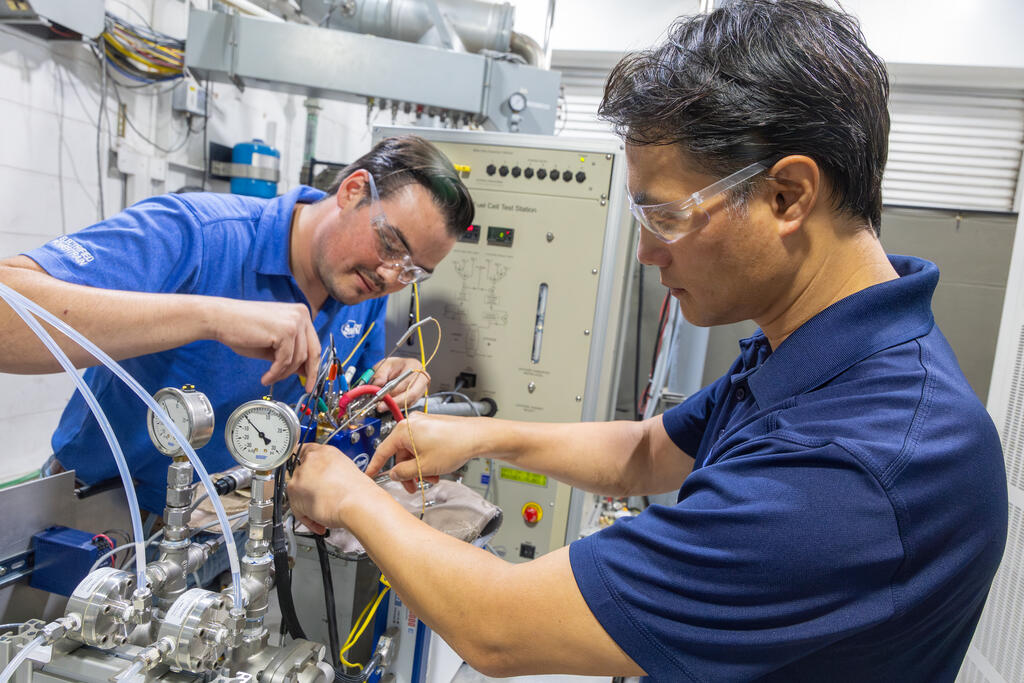
SwRI offers a wide range of testing from single-cell to system-level.
SwRI offers robust testing PEM stack testing capabilities for a wide range of hydrogen systems:
- Single-cell testing: polarization curves, EIS, and degradation analysis
- PEM stack testing: PEMFC, AEM, and SOFC validation
- System-level performance and durability testing
- Environmental simulation: temperature, humidity and pressure
- Standards compliance: SAE J2579, ISO 14687, FMVSS 307
CFD Modeling of Fuel Cells & Electrolyzers
Advanced electrochemical modeling services:
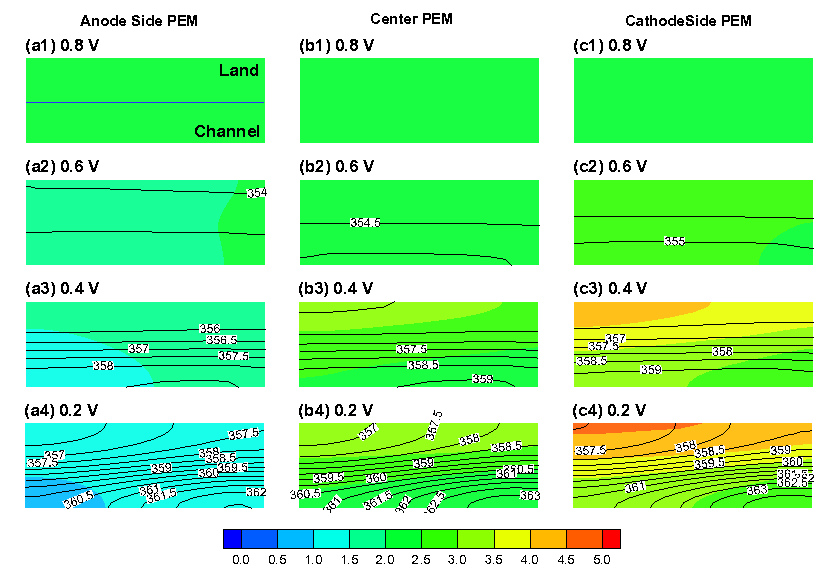
PEM fuel cell model analysis.
- 1-D and 2-D CFD models of PEM fuel cells and electrolyzers
- Fast pseudo-3D stack simulations
- Full 3-D, transient, multiphysics modeling
- Coupled transport modeling (heat, water, gas, ions)
- Modeling catalyst degradation, water management, and
- thermal dynamics
System-Level Simulation & Controls Co-Design
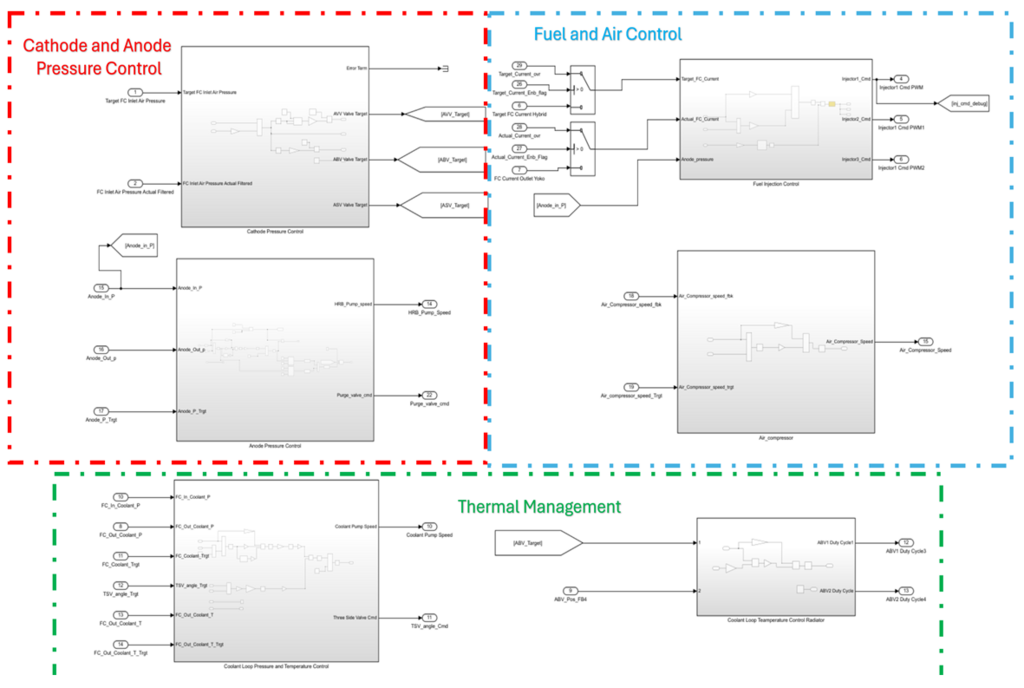
System architecture and controls.
Digital twin development and system co-simulation:
- Simulink/Simscape-based hydrogen system modeling
- Advanced coupled BOP-fuel cell simulations for vehicles and aviation
- control strategy development for custom and extreme conditions
- Scalable architectures for hybrid H2 systems (FC + battery + electrolyzer)
Facilities & Equipment
SwRI offers robust PEM stack testing capabilities for a wide range of hydrogen systems from single-cells to MW-level systems.
Fuel Cell Testing Stands
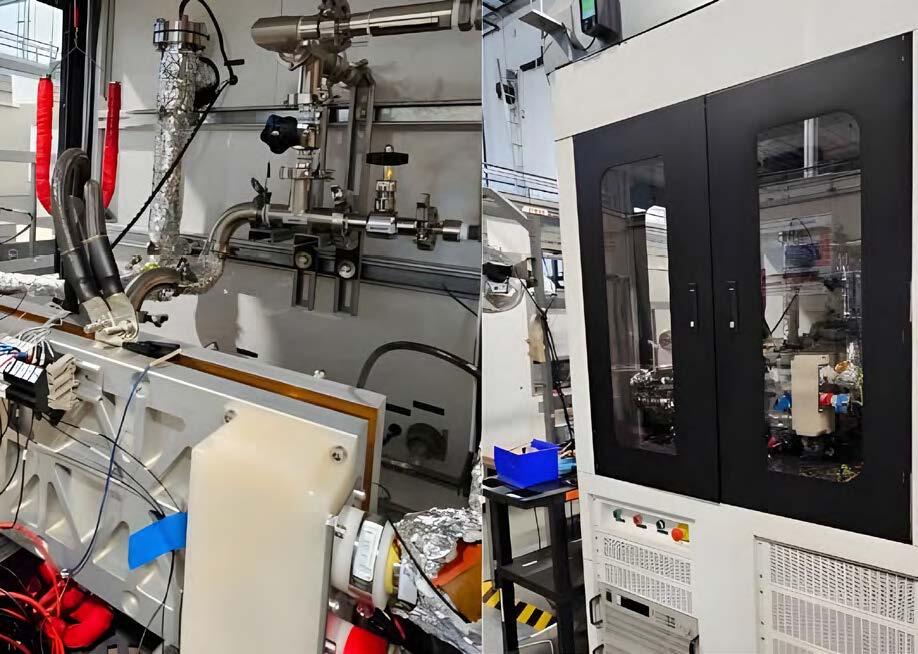
10-KW fuel cell test stand.
- Single-cell test stands for catalyst and MEA development
- 10-kW short-stack test stands for scale-up and validation tests
- 250-kW full-stack test stands with backpressure and reactant control
- Precision humidifiers and dew point control systems
- Real-time H2/air flow, voltage, and impedance tracking
- High-pressure gas handling systems up to 350 bar
- Thermal chambers with system-level fixture integration
Liquid Hydrogen Supply Facility
SwRI maintains a dedicated on-site liquid hydrogen tank with a storage capacity of 4,500 kg, capable of supplying hydrogen at pressures ranging from 40 to 350 bar and delivering flow rates up to 150 kg per hour at 350 bar. This centralized tank currently supports three lab buildings and supplies hydrogen through a dedicated pipeline to 21 test cells. These facilities are actively used for testing heavy-duty fuel cell systems, stationary fuel cell power systems rated above 500 kW, and heavy-duty hydrogen internal combustion engines (ICEs).
Please contact Fuel Cell Research & Innovation or call + 1 210 522 5165 to inquire about our consortia and research collaboratives.

Benchmarking of the 2021 Toyota Mirai Fuel Cell Vehicle
Gain insights into a hydrogen fuel cell powertrain, its operation and powertrain control system.
Related Services
SwRI has a multidisciplinary team dedicated to hydrogen energy research and hydrogen powertrains to deploy decarbonization technologies across several industries, including:
Find more automotive and electric vehicle solutions below:
For more information, contact Fuel Cell Research & Innovation or call +1 210 522 5165.
